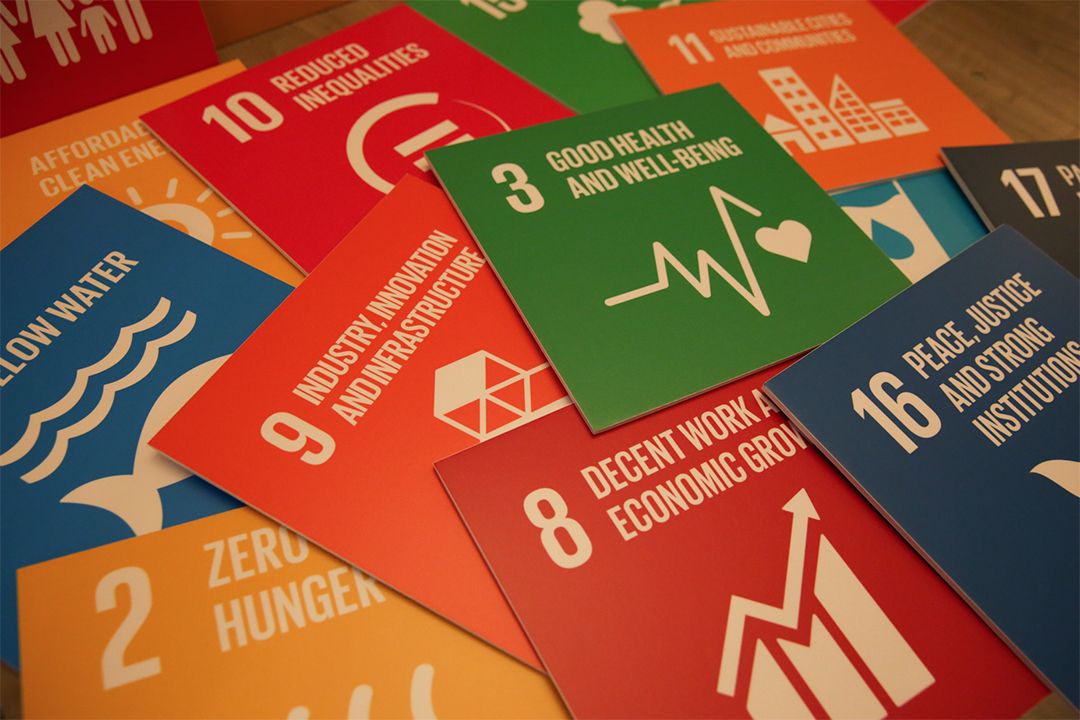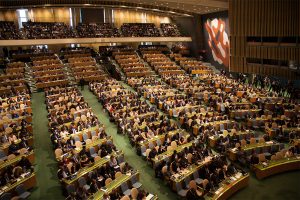27 September 2018: A UN high-level meeting on non-communicable diseases (NCDs) resulted in a political declaration pledging 13 actions to prevent and control NCDs such as cancer, heart and lung diseases, and diabetes. Country leaders agreed that national actions should encompass restrictions on smoking, unhealthy foods, alcohol and sugary drinks, including controls on the marketing of such products. The World Health Organization (WHO) reports that the risk of premature death from NCDs has somewhat declined, but the world is not yet on track to achieve SDG target 3.4 (reduce premature deaths from NCDs by one-third by 2030).
The ‘high-level meeting to undertake a comprehensive review of the prevention and control of non-communicable diseases,’ held on 27 September 2018 at UN Headquarters in New York, US, was the third such event to take place, following previous high-level meetings in 2011 and 2014. Member States and other stakeholders appraised progress made toward SDG target 3.4 and others, and multi-stakeholder panel discussions addressed: strengthening health systems and financing for the prevention and control of NCDs; and opportunities to promote multi-sectoral partnerships on NCDs and the promotion of healthy lifestyles.
UNGA President Maria Fernanda Espinosa Garces noted in her closing statement that a recent study indicates that more than half of all countries are unlikely to meet SDG target 3.4 on NCD mortality by 2030. However, she encouraged delegates that the WHO-prescribed actions on NCDs are cost-effective and feasible for all countries, including addressing tobacco and alcohol use, reducing dietary salt, sugar and fat, increasing vaccinations for girls, and treating hypertension and diabetes.
WHO launched its NCDs Country Profiles report at the meeting, which assesses national progress. The report notes that improvements are needed in health services and access to medicines and technologies for managing NCDs. WHO estimates that low-income and lower-middle-income countries could generate US$350 billion in economic growth between 2018 and 2030 if they undertake actions to prevent and control NCDs.
In preparation for the high-level meeting, Miroslav Lajcak, president of the 72nd UNGA session, convened a civil society hearing on 5 July. The meeting, supported by WHO, addressed scaling up action on NCDs, financing, partnerships, and political leadership and accountability. Sania Nishtar, Co-Chair of the WHO Independent High-level Commission on NCDs, called for: ensuring that NCDs are woven into healthcare and universal health coverage (UHC); integrating action on NCDs into SDG implementation roadmaps, social policies and national metrics; and engaging the public health community in transforming society through the use of digital technologies to advance the NCDs agenda.
In discussions, participants favored the introduction of “sugar taxes” on unhealthy food and beverages, and an end to duty-free alcohol and cigarettes. They highlighted air pollution as a risk factor for NCDs. They also called on countries to give greater priority to prevention and treatment of mental health, noting that depression is set to be the leading global disease by 2030.
Consultations on the political declaration were facilitated by Italy and Uruguay in the lead-up to the meeting. In her letter of 20 September, President Espinosa advised delegates that the declaration was set to be adopted at the High-Level Meeting.
On the sidelines of the high-level meeting, WHO reappointed Michael Bloomberg for a second term as its Global Ambassador for NCDs and injuries. Part of his role will involve advancing initiatives such as the Partnership for Healthy Cities and promoting investment in preventing NCDs and injuries. [Meeting webpage] [Programme] [WHO press release]

